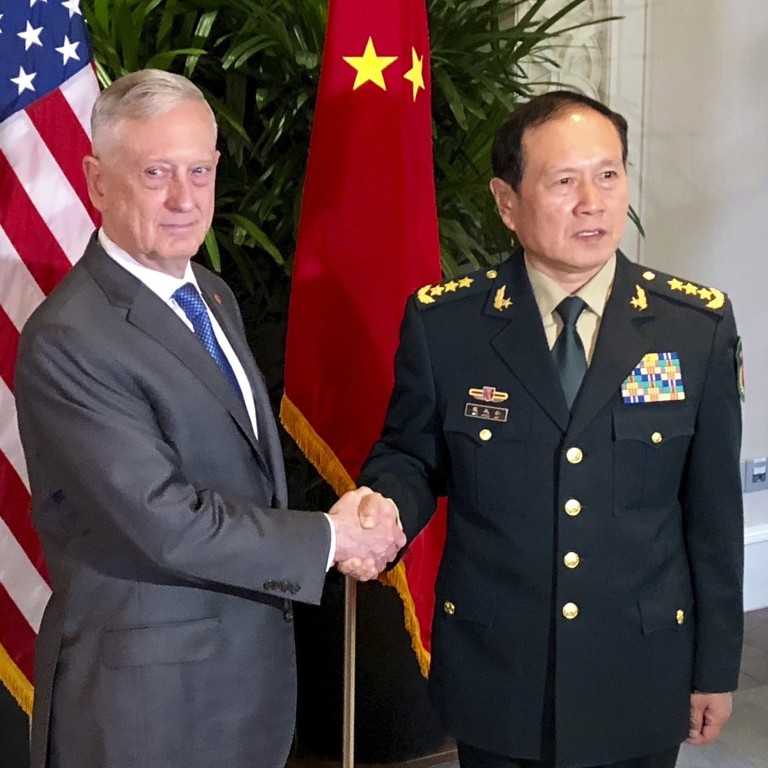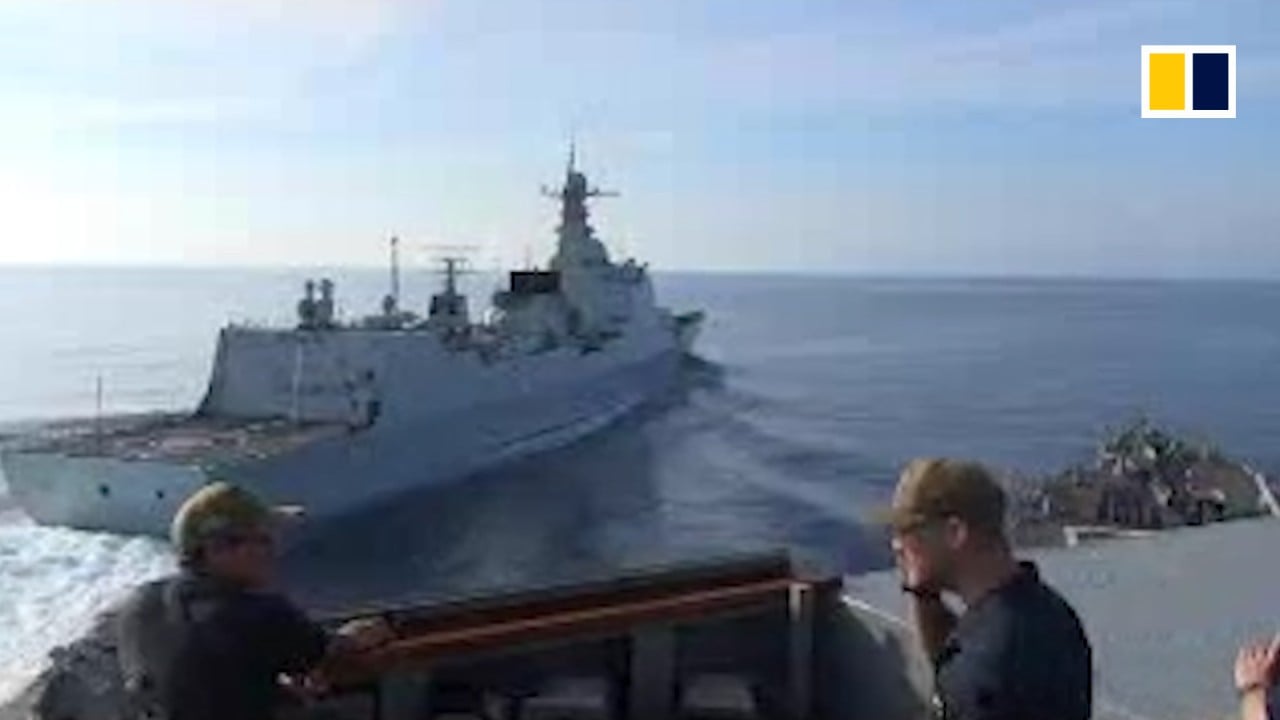
South China Sea: ex-US defence chief James Mattis told Beijing to play by the rules, Woodward book says
- Washington journalist details private talks between the American general and Defence Minister Wei Fenghe in 2018 as tensions were rising
- Mattis accused China of breaking pledge not to militarise the Spratly Islands and warned that war would be ‘extraordinarily tough’ on the Chinese
It includes rare details of private talks between Mattis and Chinese Defence Minister Wei Fenghe on November 8, 2018 during Wei’s trip to the United States. Tensions were rising between Washington and Beijing over trade tariffs and the South China Sea when the pair met for a third time in six months.

01:30
More footage emerges from 2018 near collision of US and China warships in South China Sea
During the 2018 visit, Mattis took the Chinese defence minister to Mount Vernon, the historic estate of America’s first president George Washington. There, he told Wei that China should play by the rules, and that the US was not afraid to fight if necessary, according to the book.
“No one country is going to dominate the Pacific,” Mattis told Wei. “History is very 100 per cent compelling on it. If you think you’re going to take over the Pacific, you’ll just be the fourth who thought so,” he said, referring to the European colonialists, fascist and militarist powers, and Soviet communists who had made attempts, according to Woodward.
The US general replied that China had broken a 2015 pledge not to militarise the Spratly chain, and that its militarisation of those islands had violated the UN Convention on the Law of the Sea, which China signed but the US did not ratify.
When President Xi Jinping visited the US in 2015, he said the two countries shared many interests on the South China Sea and that China’s construction activities in the Spratlys did not target or impact any country. Xi also said that “China does not intend to pursue militarisation”.
But China has built artificial islands in the waters and installed missile systems and landing strips for fighter jets and bombers in the Spratlys. The defence ministry has called these “necessary military facilities”, while Chinese state media has said they were legitimate because they were within China’s sovereignty.
Beijing claims nearly all of the resource-rich South China Sea – through which about US$3 trillion worth of trade passes every year – but there are conflicting claims from Vietnam, the Philippines, Taiwan, Malaysia and Brunei. US Secretary of State Mike Pompeo in July rejected China’s claims to the sea, in line with a 2016 tribunal ruling in The Hague that Beijing did not recognise.
According to the book, Mattis told Wei: “We want you to play by the rules. But the bottom line is: how are we going to manage our differences when two nuclear-armed superpowers step on each other’s toes? That is the fundamental question of this age. And the whole world is watching.”
He also referred to the two world wars fought last century: “Are we going to be as stupid as the Europeans, and twice in the 20th century light the world on fire? Or are we not going to do that?”
Mattis continued: “Look if you want to fight, I’ll fight. I’ll fight anybody. I’ll fight frigging Canada, OK. But I’ve had enough of fighting. I’ve written enough letters to mothers. I don’t need to write any more. And you don’t need to write them, either.”
South China Sea: the dispute that could start a military conflict
According to Woodward, the US general wanted Wei to know that war would be “extraordinarily tough” on the Chinese, whose military officers had not been involved in a major conflict since the war with Vietnam in 1979.
“I’ll just tell you,” Mattis said to Wei, “the country I would most be willing to fight would be one whose entire officer corps had never heard a shot fired at them. War is so different from training that a shock wave will go through them. I’ve got – probably 80 per cent of my officers have been shot at in one form or another. But I’d prefer not to put them through another war.”
Wei’s response to these comments was not included in the book.

02:32
Washington’s hardened position on Beijing’s claims in South China Sea heightens US-China tensions
Mattis also noted that the US was “not part of the 100 years of humiliation” – a period of intervention and subjugation of China by foreign countries from the mid-19th century to the early 20th century.
He went further. “Are you aware that it was the America that created the world that allowed the hardworking Chinese people to advantage themselves and move out of poverty?”
According to the book, Wei replied: “Yes. And we know we owe the Americans most of the thanks for this.”
Mattis announced his resignation as defence secretary on December 20 after failing to convince Trump to reconsider his decision to withdraw all American troops from Syria.
Tensions have continued to flare in the South China Sea, with the Chinese navy ramping up military drills and the US Navy conducting drills of its own and sending more warships to patrol in the waters.

